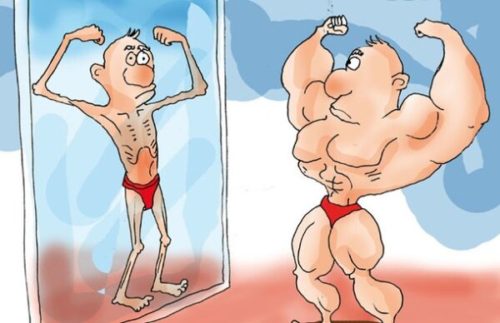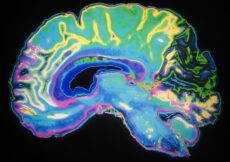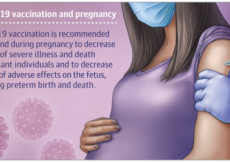March 23rd, 2022
We’ve noted several times on The PediaBlog how much the COVID-19 pandemic is negatively impacting the mental health of young people. Pointing to “soaring rates of mental health challenges among children, adolescents, and their families over the course of the COVID-19 pandemic, exacerbating the situation that existed prior to the pandemic,” the American Academy of Pediatrics, the American Academy of Child and Adolescent Psychiatry, and the Children’s Hospital Association felt compelled last October to declare a “National Emergency in Child and Adolescent Mental Health.”
While emergency visits continue to rise for children and adolescents experiencing anxiety, depression, obsessive compulsive disorders, and grief from losing acquaintances and loved ones to COVID-19, we learned earlier this month that mental health visits for eating disorders doubled during the pandemic in adolescent females.
Lambeth Hochwald discovered that boys are under just as much pressure as girls from peer influencers on social media, which is often blamed for disturbing the perceptions teens have about their own body images:
For adolescent boys, the goal is often to get superhero-size buff — and this is leading to anxiety, stress, selfies, and, often, obsessive staring in the mirror to assess their “pec” progress.
So-called bigorexia — or extreme gym time, excessive focus on protein diets, and intense muscle-building goals — has hit new and concerning levels[…]
Alex Hawgood describes bigorexia as “a form of muscle dysmorphia exhibited mostly by men and characterized by excessive weight lifting, a preoccupation with not feeling muscular enough and a strict adherence to eating foods that lower weight and build muscle.” It’s seen most commonly in young athletic males:
For many boys and young men, muscle worship has become practically a digital rite of passage in today’s beefcake-saturated culture. Examples are everywhere — the hypermasculine video games they play, the mesomorphic superheroes in the movies they watch. The top grossing films of last year were ruled by C.G.I.-enhanced masculine clichés: Spider-Man, Shang Chi, Venom and the entire Marvel universe.
Many doctors and researchers say that the relentless online adulation of muscular male bodies can have a toxic effect on the self-esteem of young men, with the never-ending scroll of six packs and boy-band faces making them feel inadequate and anxious.
Hochwald found other studies showing how muscle dysmorphia can influence teen behavior:
Whether it’s the pandemic or TikTok that’s to blame, teen boys are pushing hard to achieve six-pack abs, with one-third of them in the U.S. trying to bulk up, according to a study published in the Journal of Adolescent Health. What’s more, 22% reported they’re engaging in muscle-enhancing behavior, including excess exercise, taking supplements or steroids, or eating more to bulk up, according to a study published in the International Journal of Eating Disorders.
“The pandemic and social media have been a perfect storm for eating disorders and body image issues for all teens, but this has been under-recognized in boys,” says Jason Nagata, MD, a pediatrician who specializes in adolescent medicine at the University of California, San Francisco. “Both are directly connected to an increase in muscle dysmorphia.”
Parents should be on the lookout for red flags indicating an obsession with body image that should prompt a call to their teenager’s pediatrician for advice:
If you’ve noticed that your son is obsessed with his appearance, weight, food, or exercise, take note. Also, notice if he’s asking you to buy protein powder or is spending more time at the gym than with his friends.
“Pay attention if he is withdrawing from friends and family because of his concerns about his appearance,” Nagata says. “For example, we often hear that a teenager will no longer eat family meals or at a restaurant because the protein content isn’t high enough or the food is too fatty.”
If you’re concerned, always make sure to discuss this with your son’s pediatrician.
Read more about screening for eating disorders in adolescents and adults on JAMA’s Patient Page here.




































